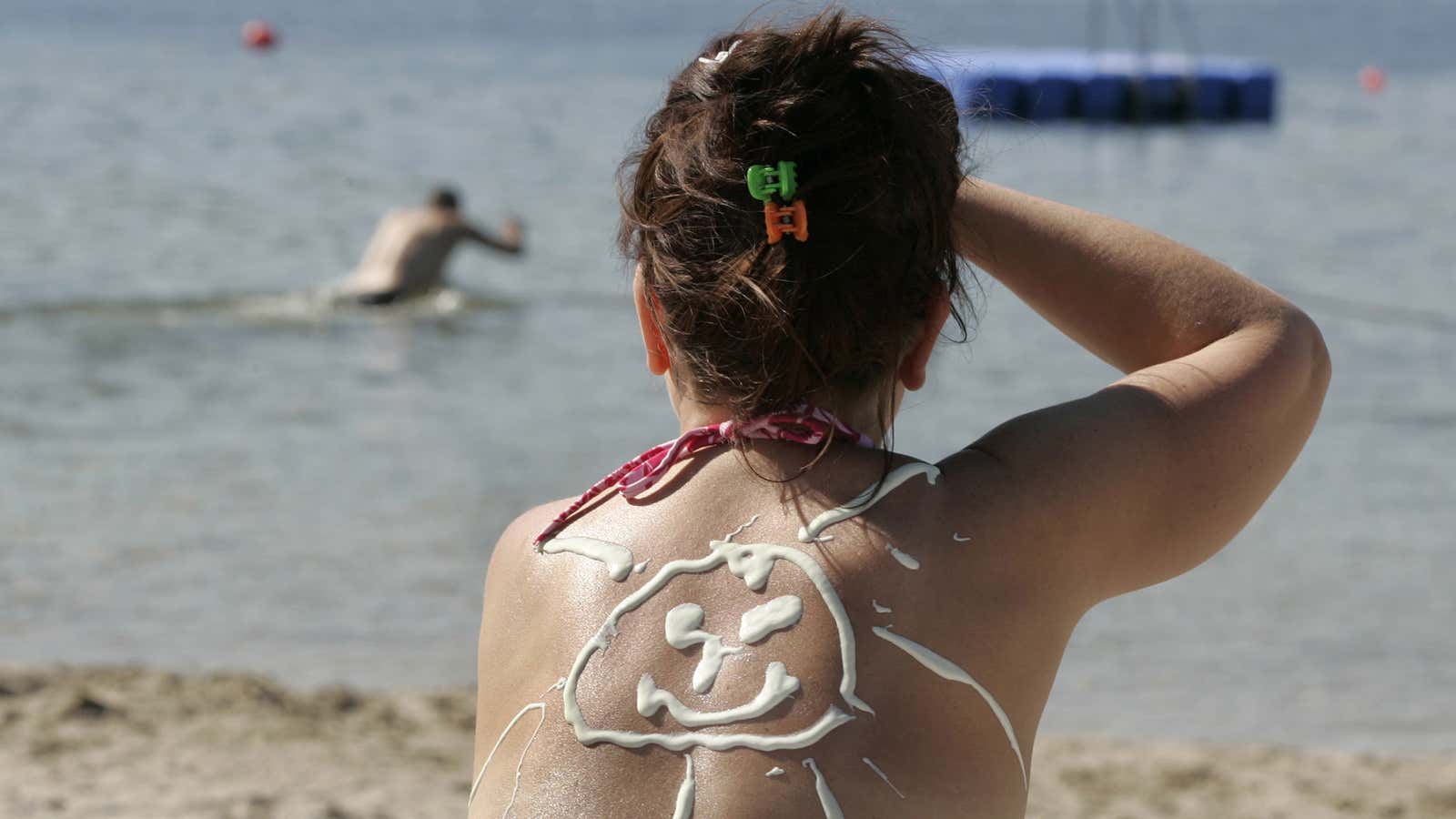If the worst part about summer was sunburns, there wouldn’t be much to worry about.
Too much sun, however, increases the chances of getting skin cancer. These risks can be cut by staying indoors, covering up, or wearing sunscreen. But, recently, experts’ suggestions run counter to this idea. They say too little sunshine can pose health risks, too. So what should you do?
We need exposure to the sun to produce vitamin D. This vital compound helps maintain bones and muscles, and therefore our strength. As we grow older, good stocks of vitamin D prevent bone fractures and diseases like rickets.
You can get vitamin D from some foods—like eggs, oily fish, fortified cereals, and margarine—but our body also makes it when the skin absorbs ultraviolet B (UVB) light from the sun. This turns a naturally occurring form of cholesterol, 7-dehydrocholesterol, into a form of vitamin D, which is further processed by the liver and kidneys so that the body can use it. Unfortunately, the sun’s UVB rays are also what burns your skin. Covering up and seeking shelter avoids this, as does sunscreen.
Louis Levy, head of nutrition science at Public Health England, says if you apply sunscreen in the way the manufacturers recommend then you won’t produce any vitamin D from sunshine. “So when you go out you need short bursts without sunscreen, while making sure you don’t get sunburnt,” he told the BBC Today program.
But that doesn’t mean you should drop the sunblock. The risks of skin cancer far outweigh the risks of vitamin D deficiency. People often don’t use enough sunscreen anyway and, depending on the formula of sunscreen you use, some UVB may still be getting through.
Fortunately, we don’t need that much vitamin D to stay healthy—most adults need just 600 international units per day. There are at least 200 units per 100 grams of salmon and 128 units in a boiled egg. On a sunny day most people will likely get more than enough vitamin D, especially when supplemented with their diet.
But new guidelines (pdf) issued this week recommend that everyone takes vitamin D tablets (400 international units per day) to make sure levels are topped up. We are spending more time indoors, even during summer months. (And England isn’t known for its sunshine, even in the middle of summer.) These supplements are particularly important for those who can’t get out in the sunshine, such as older people in residential care; people with darker skin, who tend to synthesize vitamin D at a lower rate; and for hypochondriacs. The rest of us are probably fine without pills and with sunscreen.
We at Quartz are insatiably curious. We bring you timely analysis of developments in science and technology, but in Funny you should ask we tackle more timeless questions. If you have one, submit it here.




